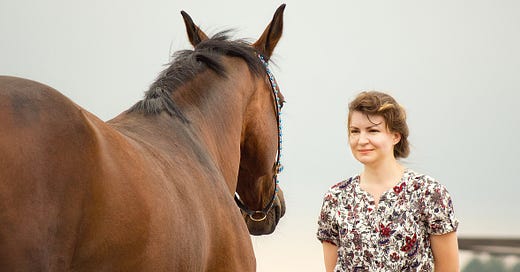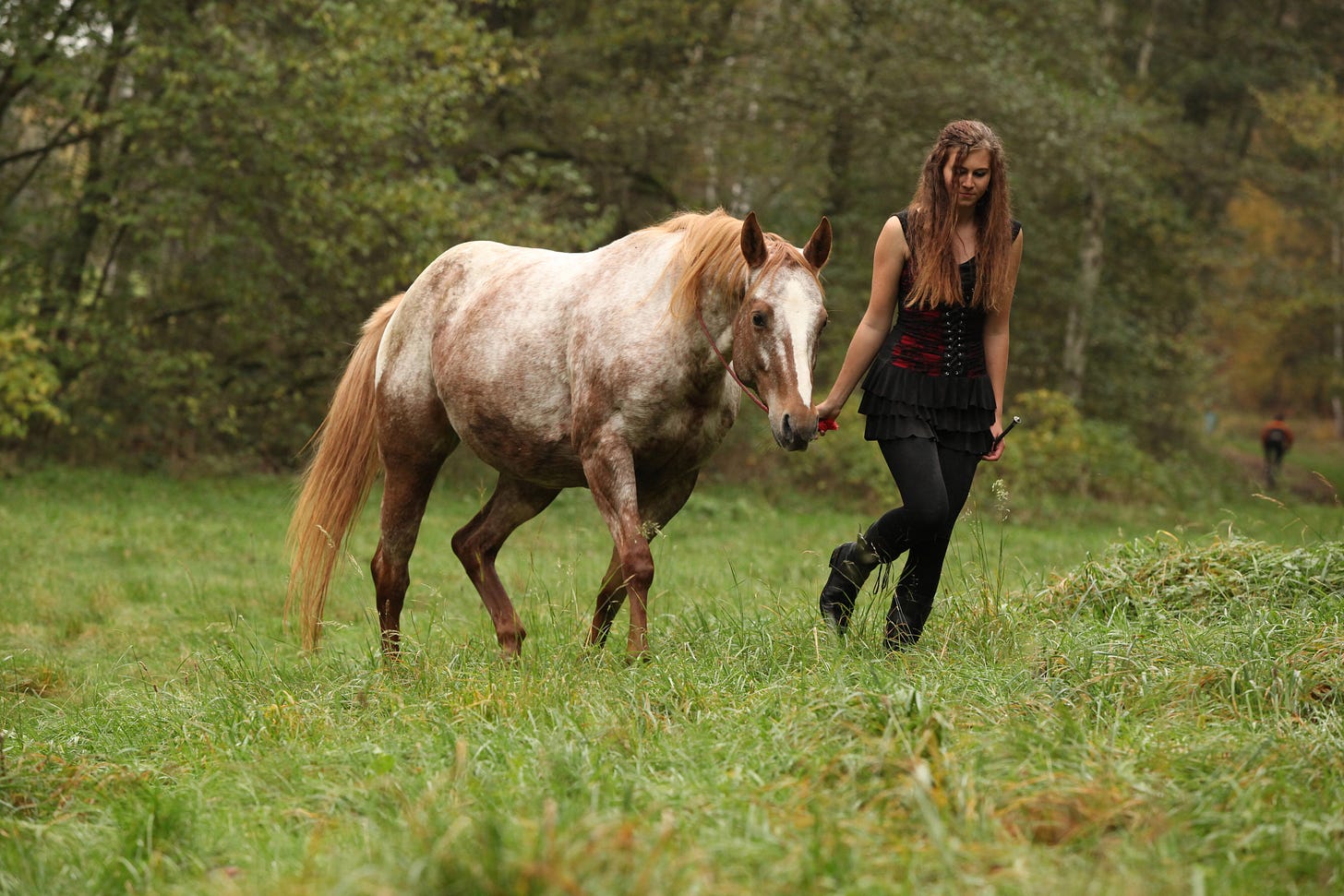Groundwork and Horses: An Evidence-Based Approach to Training Methods and Human-Horse Relationships
Few topics spark as much passionate debate as the 'correct' way to train a horse.
From traditional methods to the allure of natural horsemanship, everyone seems to have an opinion. But what does the evidence actually tell us?
Groundwork - it's the foundation of horse training
It’s the equine equivalent of learning your ABCs. But in recent years, this seemingly straightforward practice has become a battleground of competing ideologies. On one side, we have the traditional trainers, brandishing their lunging whips. On the other, the natural horsemanship gurus, claiming to 'speak horse' through elaborate body language. And somewhere in the middle, a growing cadre of science-based trainers, armed with behavioural studies and learning theory.
Training Strategies and Their Effects
Now, you might think that training a horse is simply a matter of showing it who's boss. But recent research suggests it's not quite that simple. A study comparing horses trained in open versus closed environments found that those given more freedom to respond actually showed more exploratory behaviour towards humans. It's almost as if horses, like humans, respond better when given a bit of autonomy. Who knew?
But it's not just about where you train; it's also about how. The age-old debate of carrot versus stick - or in equestrian terms, positive versus negative reinforcement - continues to rage. One study found that horses trained with positive reinforcement were more likely to approach strangers. Perhaps there's something to be said for being the treat dispenser rather than the taskmaster.
We see a horse following us around the paddock and suddenly we're starring in our own Black Beauty remake.
Human-Horse Relationships in Groundwork
Now, here's where it gets interesting. We humans love to anthropomorphize, don't we? We see a horse following us around the paddock and suddenly we're starring in our own Black Beauty remake. But what's really going on in that equine mind?
Research using a modified version of the 'Strange Situation' test - usually reserved for studying infant attachment - found that horses do indeed show some attachment-related behaviours towards humans. They seek proximity during reunion and show decreased heart rates with both owners and strangers. It's heartwarming stuff, isn't it? But before you start planning matching BFF necklaces for you and your horse, let's keep in mind that they showed these behaviours with strangers too. Your horse might just be an equal opportunity friend.
Critical Evaluation of Natural Horsemanship and Round Pen Training
Ah, natural horsemanship. It's captured the imagination of horse lovers worldwide, promising a near-mystical connection with our equine friends. The round pen has become a sort of equestrian Stonehenge, where training magic supposedly happens.
But here's the rub - the evidence doesn't quite back up the claims. Those dramatic displays of dominance that are meant to mimic horse social behaviour? Well, they're about as 'natural' as a square fenced paddack. Studies of actual horse social behaviour show that affiliative interactions are far more common than the agonistic displays favoured by some natural horsemanship trainers.
Your horse doesn't care about your training philosophy - it cares about clear, consistent communication.
The Role of Learning Theory in Groundwork
Let's cut through the mystique and get down to brass tacks. When we strip away the romantic notions of 'horse whispering', what we're left with is good old-fashioned learning theory. It turns out that horses, like most of us, learn through a combination of:
Habituation: The horse equivalent of tuning out your neighbor's lawnmower.
Operant conditioning: If I do this, I get a carrot. If I do that, the pressure goes away.
Classical conditioning: That rattling sound means food is coming!
It's not as sexy as claiming to be the reincarnation of a Mongolian horse lord, but it's a lot more scientifically sound.
Implications for Effective and Ethical Groundwork Practices
So, where does this leave us in our quest for effective and ethical groundwork? Here are a few evidence-based suggestions:
Balance control and choice: Give your horse options during training. They're less likely to view you as a predator if you're not constantly backing them into a corner.
Embrace the power of friendship: Incorporate more affiliative behaviors in your training. A scratch on the withers might get you further than a stern look.
Science is your friend: Use evidence-based approaches to improve horse welfare and training outcomes. Your horse doesn't care about your training philosophy - it cares about clear, consistent communication.
Final Thoughts
Firstly, the relationship between horse and human is complex. Horses do form attachments to us, but they're not quite the same as human relationships. Your horse is unlikely to be planning your birthday party.
Secondly, while natural horsemanship has brought some valuable insights to the equestrian world, it's time to separate the wheat from the chaff. Not everything that claims to be 'natural' is beneficial or even accurate.
Finally, effective groundwork is less about dominating your horse and more about clear communication, consistency, and yes, a bit of science.
For future research, we need more studies on long-term outcomes of different training methods, and investigations into how horses perceive human body language.
As for practical applications? Well, the next time you're in the round pen, maybe spend less time trying to be the 'alpha horse' and more time being a clear, consistent, and yes, occasionally treat-dispensing human. Your horse will thank you - probably not verbally, but hey, you can't have everything.
References
Baragli, P., Padalino, B., & Telatin, A. (2015). The influence of environment and experience on behavioural and physiological responses of horses to handling. Applied Animal Behaviour Science, 172, 23-30.
Henshall, C., Padalino, B., & McGreevy, P. (2012). The radio-controlled car as a herd leader? A preliminary study of escape and avoidance learning in the round-pen. Journal of Veterinary Behavior: Clinical Applications and Research, 7(3), 169-176.
Christensen, J. W., Rundgren, M., & Olsson, K. (2006). Training methods for horses: habituation to a frightening stimulus. Equine Veterinary Journal, 38(5), 439-443.






